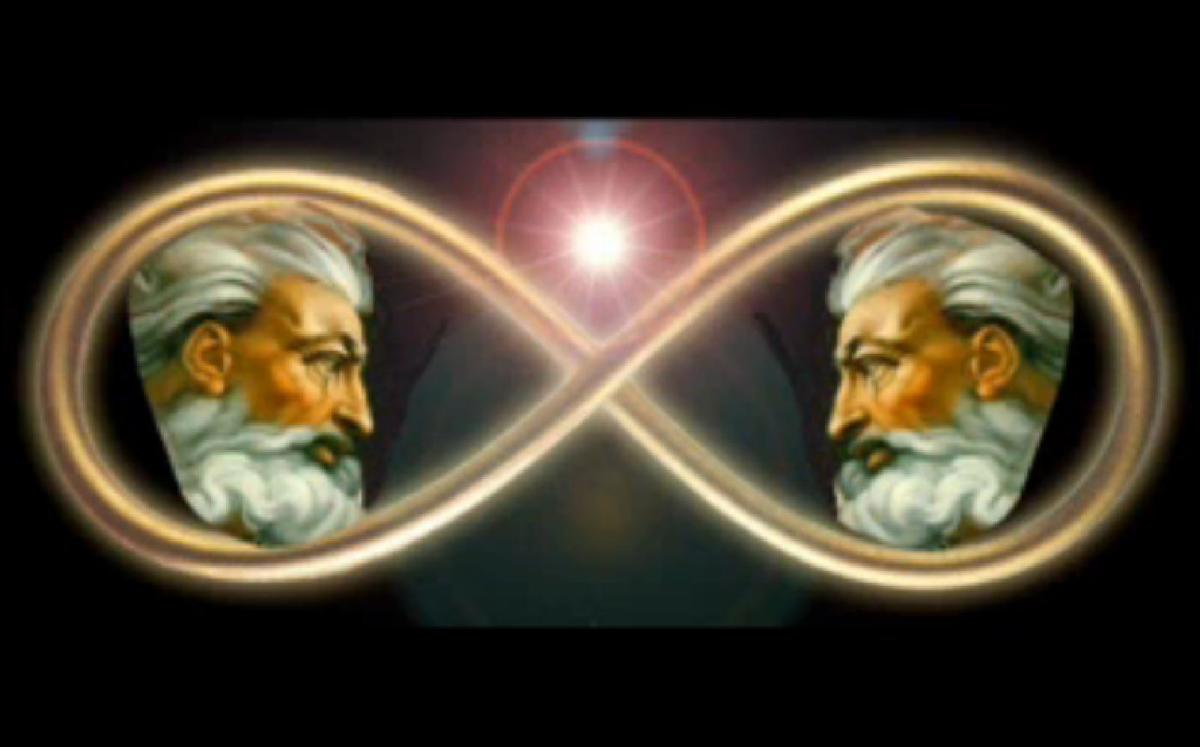BELIEVE!? What do you mean???
BELIEVE!? Huh?

When people say "I believe," what do they really mean? by Michael Mikio Nakade, MA
Introduction: Quite frankly, I am amazed by the sheer number of hubs that deal with 'beliefs.' Lots of Christian folks make one confessional statement after another, and they quote one biblical passage after another. I mutter to myself: "What are they doing? Those Christians are doing the act of believing when they write down their beliefs with biblical quotes." It seems that they completely mistake their 'beliefs' with 'knowledge' because they can quote biblical passages to justify their beliefs. The Bible is, of course 'true' to those Christians ONLY BECAUSE they 'believe' it's true. There is absolutely no proof that the Bible is true.
As someone with a decent background in philosophy and rhetoric, I do get irked when folks mistake their belief for knowledge. One hub page in particular irked me so much when a devout Christian suggested that natural disasters are god's way of punishing victims. He wrote his hub page as if he was informing us the fact. It was simply his belief. At any rate, I want to insist that belief and knowledge are quite different, and I would like to examine the difference between the two.
First of all, the meaning of 'belief' is examined. Here are sample statements:
1. I believe that Jesus of Nazareth is the Messiah.
2. I believe that the white race is the superior race.
3. I believe that all men are created equal.
4. I believe that God punished the State of Alabama with a devastating tornado in 2011.
5. I believe that Joseph Smith is the final and the most authoritative prophet of God for this generation, latter-day.
6. I believe that the truth of Christianity is being taught by the Watch Tower Bible Society.
7. I believe that Rev. Moon is the true Messiah.
8. I believe that the world is coming to an end in 2012.
Those statements above are all beliefs. Nothing more, nothing less. People are entitled to believe those aforementioned things, whether or not there are 'proofs' for those beliefs. Needless to say, some 'beliefs' are more offensive than others, but no one can really prevent anyone from believing in anything. I simply let Christians, for example, believe what they want to believe. I let the Mormons and the Jehovah's Witnesses believe in their respective stuff, as well. When people 'believe' certain things, there are no room for discussion. Minds are already made up, and any attempts to discuss beliefs end up in a circular argument. (I know I'm right because I believe I'm right.)
(However, there are wrong 'beliefs,' and they must be challenged. Neo-Nazis beliefs are harmful. Fundamentalist Christians' refusal of having their children be exposed to the latest scientific knowledge is harmful. As a society, dangerous beliefs must be checked. Otherwise, there will be another Branch Davidians and Heaven's Gates. )
Now, there is another form of belief, and it deals with human hope and aspiration. Here are some examples:
1. I believe that my child will someday become a great human being, even though he flunked the 8th grade.
2. I believe in my boss' ability to handle this difficult situation.
3. I believe that I will be rescued if I just hold on to this raft.
4. I believe that I will survive this upcoming surgery.
Those aforementioned beliefs deal with one's various situations, and one is trying to remain positive and optimistic in spite of current difficulty. There are no 'proofs' that one will survive the situation, but one chooses to believe that one will. There's nothing wrong with this belief. In fact, we, humans, need to believe in our future to make it through various challenges that life presents. I take this kind of belief very seriously, and I respect those who believe in their bright future.
"Knowledge," on the other hand, is fundamentally different from 'belief.' In philosophy, 'knowledge' points to certainty. The Greeks, for example, wanted the iron-clad truth and hated people's subjective feelings, ideas, opinions, and beliefs. The truth, according to Plato, goes far beyond our sensory experiences of ever-changing outside world. So, Plato and others all asked: What can we know? If we think we know something, then, how do we know what we know is true for sure? I think philosophers through the ages dealt with this fundamental epistemological question. For me, David Hume and Immanuel Kant's works are the crown jewels of philosophy because they honestly addressed these aforementioned epistemological issues. Hume remained skeptical, while Kant became convinced of the a priori knowledge, aka intuition.
Conclusion: I'd like to suggest that we separate 'beliefs' and 'knowledge' when we discuss our religious faith. Christians can spew our their beliefs left and right. They are more than entitled to believe what they want. However, they need to be reminded that they are merely talking about their beliefs in the same way that the Mormons and the Jehovah's Witnesses talk about their respective beliefs. They are to be taken seriously for their beliefs, but they are not to be taken seriously for their knowledge. With this in mind, I think religious folks just might be less inclined to persecute others for different beliefs.








